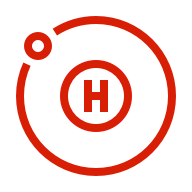Renewable and low-carbon hydrogen, along with its derivatives, represent one of key decarbonisation driver, enabling significant reductions in emissions from our own operations and facilitating the production of law-emission fuels.
We are investing In various feedstock sourcing options and conversion technologies, including the production of renewable and low-carbon hydrogen, aiming to achieve optimal decarbonisation outcomes while minimising compliance costs. At the same time, we are reviewing maritime import options for hydrogen and its derivatives, as well as assessing the feasibility of pipeline imports through the European Hydrogen Backbone (EHB).
Definitions:
Low-emission hydrogen – The Hydrogen and Gas Market Directive (EU) 2024/1788 defines low-emission hydrogen as hydrogen from non-renewable sources that meets a greenhouse gas emission threshold of 70% compared to fossil fuel.
Green hydrogen / Renewable hydrogen – produced by electrolysis, using renewable electricity to split water into hydrogen and oxygen, and is therefore a “renewable fuel of non-biological origin” (RFNBO).
Zero-emission fuel – a fuel that does not produce CO2 emissions when used in a fuel cell in a vehicle.
ORLEN's demand for low-emission and renewable hydrogen in 2035
Hydrogen market in Poland and the Baltics. Until 2040
Check out the report to learn more.


